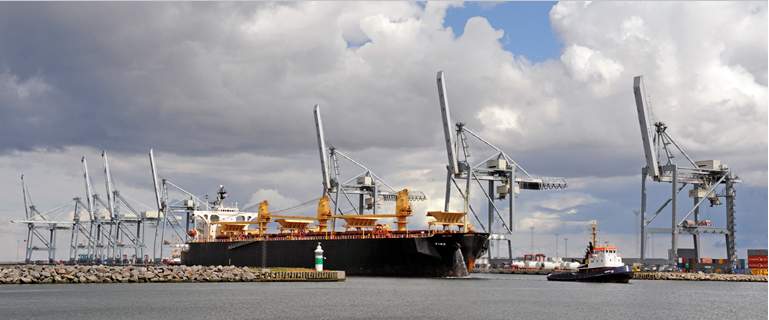Mange fordele ved samarbejde i havnene

Maritime virksomheder kan opleve mange fordele ved at placere sig på en af de danske havne. Det fortæller direktør i brancheforeningen Danske Havne, Tine Kirk Pedersen, til Sanne-Maria Bjerno Jakobsen fra MediaPlanet. “Det kan være givende for virksomhederne at være en del af erhvervslivet på havnene. Her kan de indgå i forskellige klyngemiljøer, som kan være med til at skabe gode kontakter og måske udvikle nye produkter.” Hun peger på, at det f.eks. er oplagt for virksomheder, der udvikler og leverer teknisk udstyr til skibe. De kan få glæde af at bo tæt på andre virksomheder, der leverer lignende typer udstyr. Skrot og fiskefileter Tine Kirk Pedersen fortæller, at der er mange forskellige typer virksomheder placeret på havnene, selvom vi ikke tænker meget over det i det daglige – f.eks. fiskefiletfabrikker, skibssmedjer og skrotvirksomheder, der specialiserer sig i ophugning af f.eks. skibe og boreplatforme. Hvis de placerer sig i en havn, hvor lignende virksomheder ligger, og hvor infrastrukturen passer til erhvervet, kan både de selv og havnen have gensidig glæde af at ligge tæt sammen. “Maritime klynger kan styrke virksomhederne indbyrdes, og det kan derfor også have en effekt på hele Danmarks indtjening via import og eksport. Danmark er en søfartsnation, og havnene bidrager dermed til landets økonomi.” De danske havne skaber også værdi i lokalområdet. De skaber jobs og lokker folk til området. Og det giver grobund for, at flere virksomheder kan få fodfæste. Miljøvenlig transport aflaster vejene I fremtiden håber Tine Kirk Pedersen, at flere ser mulighederne ved havnene. Hun peger på fordelene ved at føre mere gods rundt i verden via “de blå motorveje”, som hun kalder transporten over havene. “Det er meget bedre for miljøet at transportere gods med skibe end med lastbiler. Og så aflaster det trafikken på land.” Kilde: MediaPlanet / Sanne-Maria Bjerno Jakobsen
